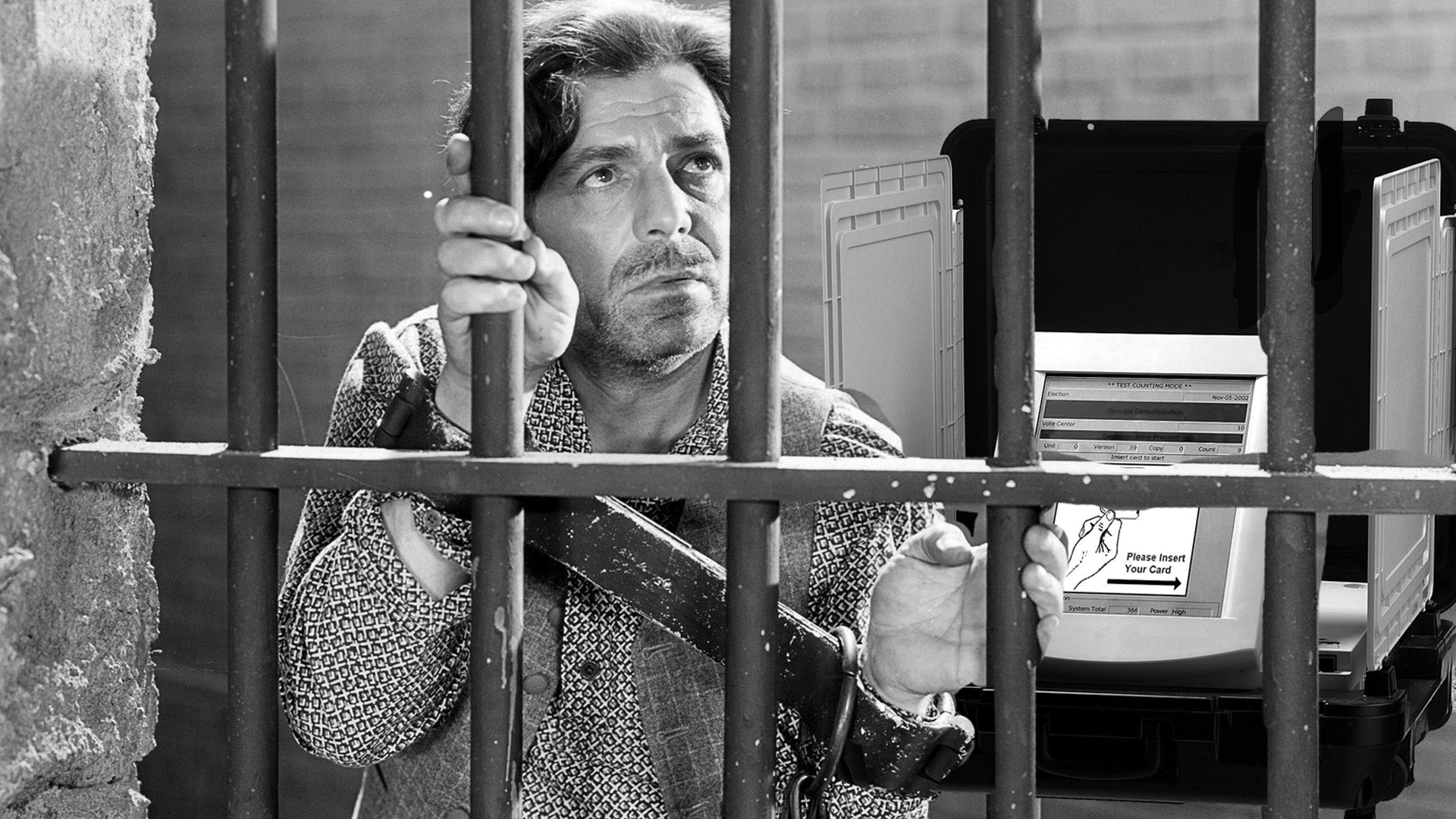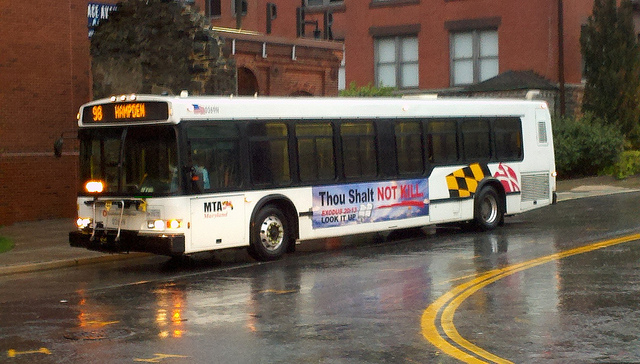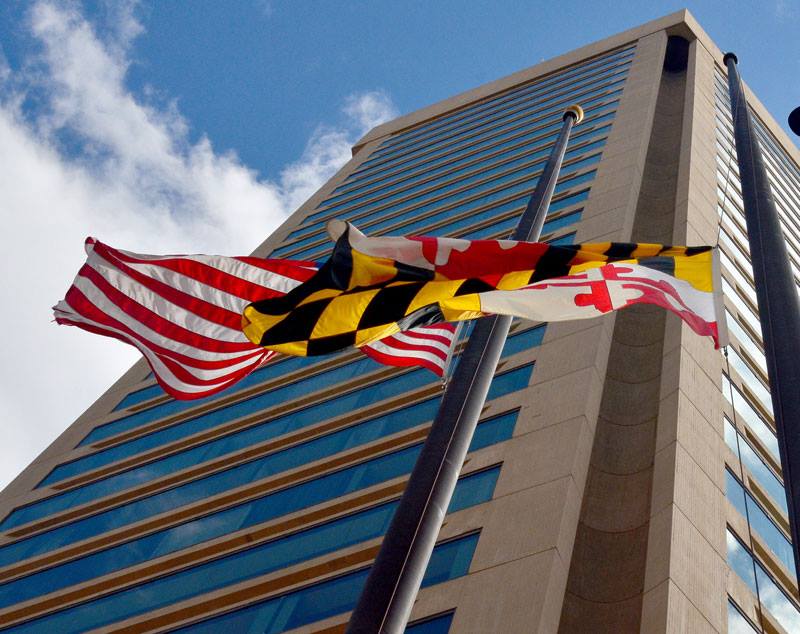By Rebecca Lessner
for MarylandReporter.com
In a political stunt to bring attention to what he calls “the year of the criminal,” Del. Pat McDonough offered an amendment to a bill that would put voting machines in prisons and wound up not even voting for the idea himself.
“This particular amendment, some may consider to be a friendly amendment,” said McDonough, R-Baltimore and Harford.
“We voted to support convicted felons, after they completed their sentence, that they could vote,” said McDonough. “Then the trend continued, and we voted that now, they can vote when their sentence is not completed.”
McDonough foresees a “pretty clear trend” that will continue next year, proclaiming the 23,000 offenders incarcerated in Marylands’ prisons will also have the right to vote.
“We will roll in the machines and allow them to vote in the facilities,” said McDonough. “But I say this, why waste time?”
The delegate asked for the machines to be installed before the upcoming presidential election.
The amendment failed with the McDonough also voting against his own prank-bill.
Fundamental right
Not all legislators took the bill so lightly, arguing that the bill was a “fundamental right” of ex-offenders.
“We are basically saying with this bill, that when you come out of prison, you will then be returned to become a member of society,” said Del. Frank Turner, D-Howard.
HB 980 would give ex-offenders, including felons, the right to vote upon their release, allowing them to vote even before their parole is completed.
Del. Jay Walker, D-Prince George’s, asked for an amendment to the bill, restricting voting rights to six-months into an ex-offender’s parole.
“This amendment makes sense, to give us a cooling-off period…in case they go back in,” said Del. Anthony O’Donnell, R-Calvert and St. Mary’s, who completely disagreed with the bill..
The amendment was voted down 57-72.
Del. Brett Wilson, R-Washington County, was also against the bill and said that a victim or the victim’s family will have to cope with the knowledge that the predator now has the right to vote, potentially even in the same polling place.
Del. Mary Washington, D-Baltimore City, brought up that there are many options to voting, including voting by absentee ballot. She asked if the bill would supersede existing laws that prohibit sexual predators from entering schools.
Turner confirmed sex offenders would still be barred from entering schools to vote if that is already a condition of their parole.
Hawaii, Illinois, Indiana, Oregon, Massachusetts, New Hampshire, Rhode Island and the District of Columbia are among other states that have variations of the bill as law.
The bill will come up on the House floor for a final vote before moving onto the Senate.
RebeccaAnnLessner@gmail.com







Recent Comments